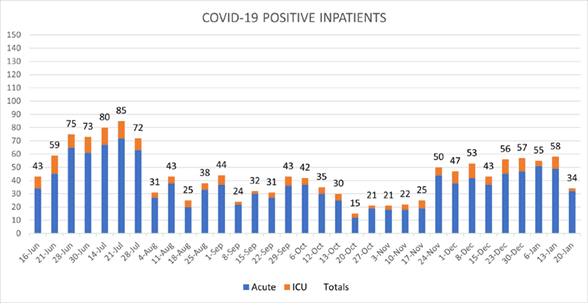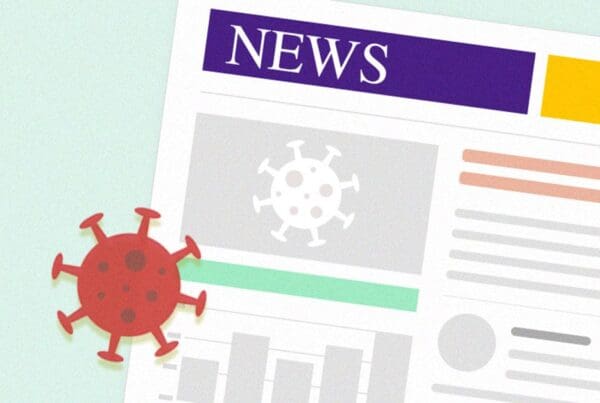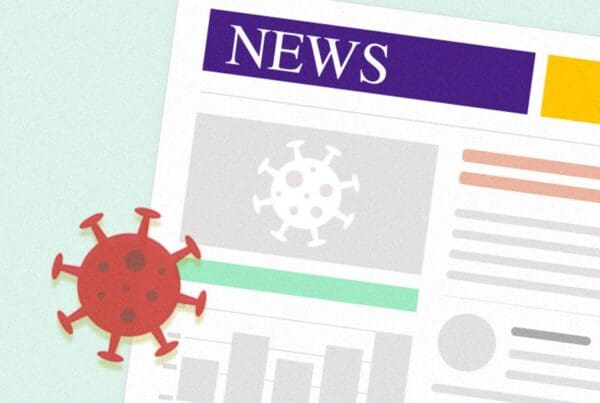Quick Read:
- Today marks three years since the first confirmed case of COVID-19 in the U.S. was reported in Washington state.
- The bivalent boosters are continuing to show good protection against the latest Omicron subvariants, including XBB.1.5.
- We are winding down our regular COVID-19 updates. Today’s message is the last in this series, but we will continue sharing important COVID-19 information as appropriate.
- Thank you to everybody who has contributed to UW Medicine’s COVID-19 response over the past three years. Your actions saved lives and protected our community.
Three years ago today, the Centers for Disease Control and Prevention reported the first confirmed case of COVID-19 — then known only as “novel coronavirus” — in the U.S. right here in Washington. Our region soon became the nation’s epicenter for COVID-19 activity and put all of us at UW Medicine on the front lines of an unfolding pandemic.
Little did we know then how much our lives would change or for how long. We only knew that COVID-19 posed a serious threat and that our patients and community needed us more than ever. Together, we rose to this unprecedented challenge. We found new ways to work, collaborate and communicate. These messages became one part of that effort.
For the past three years, we’ve used this space to share the latest information about COVID-19 and UW Medicine’s response to what has been the greatest public-health emergency of our lifetimes. The goal from the start was to follow the data and to present it in a way that could be broadly understood. I’ve tried to inform with facts and empathy, while also sharing important policy updates and highlighting the tremendous work being done across our system.
Three years on, the data now show it’s time to wind down these regular updates, just as we’ve done with the Emergency Operations Center and other aspects of our ongoing COVID-19 response.
We’re not going to stop communicating about COVID-19 — you can’t get rid of me that easily — but this message will be the last of my scheduled COVID-19 updates. That’s a good thing because it means we’ve learned and adapted and are transitioning to a world where COVID-19 exists but no longer defines our existence.
In fact, here are some reasons for optimism about this spring and summer — and for a future that more closely resembles our pre-COVID past:
- The bivalent boosters continue to show protection against all of the latest Omicron subvariants, including XBB.1.5, which is now dominant in the Northeast and Mid-Atlantic and moving west fast. Despite the greater transmissibility of XBB.1.5, there are no indications it causes more serious illness than the BQ.1.1 or BQ.1 strains it is rapidly displacing.
- Nearly everybody is now eligible for the bivalent boosters. Last month, the CDC approved them for children as young as 6 months.
- As a health system, we’re more experienced with COVID-19. While staffing and capacity continue to present challenges, we have developed better ways to treat COVID-19 patients and do so now in a more efficient and integrated way than we did in the early days of the pandemic.
- We have the tools and best practices to reduce the spread of COVID-19 (such as masking, physical distancing and avoiding crowded indoor spaces), and we have a plentiful supply of vaccine, boosters and treatments, including Paxlovid and remdesivir.
UW Medicine COVID-19 Activity Summary

Local/National/Global Epidemiology
King County: Public Health – Seattle & King County is reporting 541,675 total cases and 3,442 deaths as of Thursday, Jan. 19. The number of new positive tests over the past seven days is currently at 58.6 per 100,000 people.
Washington: The Department of Health reports 1,899,401 cases and 15,312 deaths as of Jan. 17.
United States: The Centers for Disease Control and Prevention reports 332,212 new cases weekly, 101,873,730 total cases and 1,099,866 deaths as of Jan. 19.
Global: The WHO COVID-19 Dashboard reports 663,640,386 confirmed cases and 6,713,093 deaths as of Jan. 20.
In closing, I simply want to say thank you. There are so many people across UW Medicine who deserve recognition and credit. Listing them all here would be impossible, but their actions over the past three years made our COVID-19 response a model for other health systems to follow. Even these messages, like all of our work, have been the result of a team that has worked together for the last three years. Our collective effort and our unwavering focus on patient care saved lives and protected our community. We should be proud of that legacy and always strive to uphold it.
Last, thank you for reading. Serving the UW Medicine community through this forum, during this time, has been a privilege and a highlight of my career. I’m deeply grateful to everybody who trusted and shared the information that we published as well as to all who contributed material or offered feedback along the way.
I’m proud to call you all colleagues and to have journeyed this road together.
Onward,
John Lynch, MD, MPH
Medical Director, Infection Prevention & Control
Associate Medical Director, Harborview Medical Center
Division of Allergy & Infectious Diseases, UW School of Medicine

